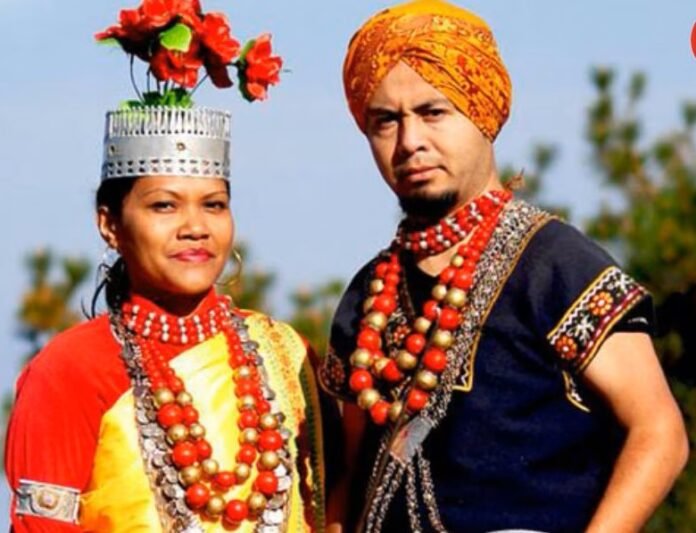In the Khasi and Garo tribes of Meghalaya, marriage customs beautifully reflect the matrilineal roots of their society, where lineage, property, and heritage flow through women. Unlike most patriarchal structures, here, the groom moves into the bride’s home after marriage, acknowledging the significant role of women within the family and community. Children inherit their mother’s clan name, and family wealth and property are traditionally passed down to the youngest daughter. This unique system grants women a pivotal role in the family as the primary custodians of assets, celebrating and empowering them at every stage of life. The birth of a girl is often celebrated with joy, highlighting the respect and honor for women across both urban and rural areas in Meghalaya.
Wedding customs in Khasi and Garo communities are equally distinctive, marked by symbolic traditions and cultural reverence. For instance, the groom is responsible for gifting a portion of the bride’s attire and jewelry, an act that reflects his respect and commitment. The bride herself wears an elaborate crown, typically crafted from gold or silver with a striking peak at the back, symbolizing her esteemed status in society. Additionally, strict rules prohibit marriages within the same clan to preserve lineage integrity, with the possibility of ex-communication for those who disobey this rule. While traditionally arranged marriages were the norm, modern influences have brought love marriages into acceptance, yet a profound respect for ancestral customs endures. Maternal uncles play a vital role as marriage negotiators, bridging families and ensuring the union respects familial honor and societal expectations.
Divorce in these tribes, although rare and discouraged, is permitted under specific conditions, such as childlessness. The decision to separate must be mutual, with the same witnesses who attended the marriage present to finalize the divorce. If a couple wishes to separate due to the inability to bear children, they are allowed to do so, but neither partner can remarry without an official divorce. This system safeguards the sanctity of marriage, deeply rooted in the Khasi belief that marriage serves to extend and strengthen the clan.
Khasi and Garo marriage customs uphold the matrilineal essence of these tribes, underscoring the respect for women and the reverence for tradition. These customs illustrate a society where marriage is not merely a union of individuals but a vital institution that binds and expands the clan, celebrating women’s roles as protectors of family heritage and stability in their unique cultural tapestry.


